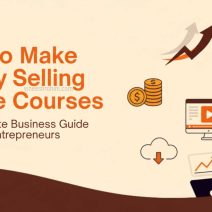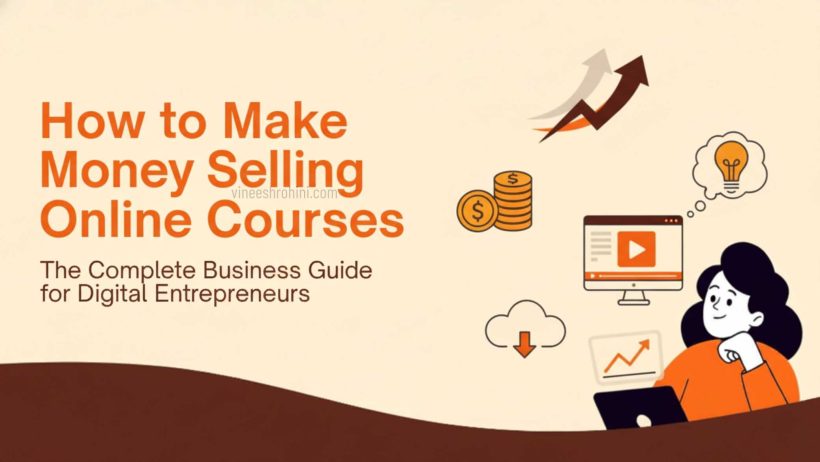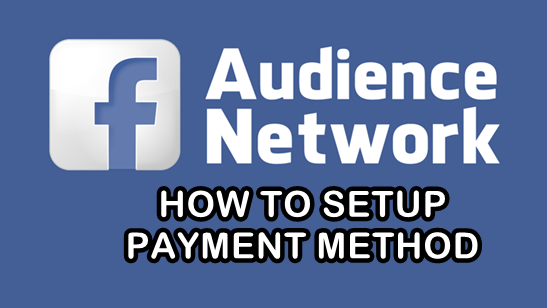Selling Online Courses : The education industry has entered a golden era of digital transformation. Over the past few years, the global e-learning market has evolved from a niche trend to a multi-billion-dollar industry where creators, educators, and professionals earn substantial income by sharing their knowledge online. In 2025, selling online courses is not just a side hustle—it’s a full-fledged business model with the potential for global reach and recurring revenue.
Table of Contents
If you have skills, knowledge, or experience in any field—be it marketing, fitness, coding, design, or personal development—you can turn it into a profitable online course business. The rise of affordable technology, user-friendly course platforms, and high internet penetration has made it easier than ever to teach and earn from anywhere in the world.
This comprehensive guide will walk you through every step of building and scaling a successful online course business in 2025—from choosing the right niche and creating compelling content to marketing, monetization, and long-term growth strategies.
The Rise of the Online Course Economy

Online learning has become a global movement. According to market research reports, the e-learning industry is projected to exceed $500 billion by 2028, driven by technological advancements and the growing need for skill-based education.
Unlike traditional education, online learning offers flexibility, affordability, and immediate access to information. People are no longer waiting for degrees—they’re buying results and transformation. Whether it’s mastering a new software tool, learning to invest, or improving productivity, learners seek quick, actionable, and engaging learning experiences.
For course creators, this presents a massive opportunity. Once you create a course, it can generate revenue repeatedly with minimal additional cost, creating a scalable and passive income stream. Entrepreneurs worldwide are now building personal brands and full businesses around online courses, memberships, and coaching programs.
Also Read : How to Start an Online Event Management Business in 2025 : Complete Professional Step-by-Step Guide
Choosing the Right Niche: The Foundation of Success
Selecting the right niche is the cornerstone of a successful online course business. The best niche lies at the intersection of three key factors: your expertise, your passion, and market demand.
Ask yourself:
- What am I naturally good at or experienced in?
- What topics do I enjoy teaching or talking about?
- What problems can I solve for others?
- Is there existing demand for this topic online?
Top Profitable Niches in 2025
- Digital Marketing: SEO, social media, copywriting, and email marketing remain evergreen.
- Technology and AI: Machine learning, blockchain, and software development.
- Personal Finance: Investing, crypto, budgeting, and wealth management.
- Health and Fitness: Yoga, diet coaching, and mental wellness.
- Creative Skills: Photography, video editing, music production, design.
- Entrepreneurship: Business development, e-commerce, and freelancing.
To validate your niche, use tools like G Trends, AnswerThePublic, or Udemy Insights to analyze search volume and competition. Choose a niche with consistent demand and room for differentiation.
Designing the Perfect Course: Structure and Curriculum

Your course’s success depends on how well it’s structured and how easily it helps students achieve the promised outcome. A well-planned course creates clarity, engagement, and transformation.
Steps to Design an Effective Course Curriculum
- Define Learning Outcomes: Clearly state what your students will achieve after completing the course.
- Outline Modules and Lessons: Break your topic into logical, bite-sized lessons.
- Mix Formats: Combine videos, PDFs, quizzes, and interactive exercises for better retention.
- Focus on Engagement: Add storytelling, real-life examples, and case studies.
- Keep it Concise: Avoid information overload—each lesson should be clear and actionable.
Example: If your course is “Mastering Digital Marketing,” you might have modules on SEO, paid ads, email marketing, analytics, and social media campaigns.
Creating High-Quality Course Content
Content quality determines the credibility and conversion rate of your course. In 2025, learners expect polished, engaging, and professional-quality videos, not just talking-head recordings.
Tips for Producing Engaging Course Content
- Invest in good equipment: A decent camera, microphone, and lighting make a huge difference.
- Be authentic and enthusiastic: Your passion drives engagement.
- Use visuals and examples: Slides, diagrams, and animations enhance learning.
- Maintain clarity: Use simple language and avoid unnecessary jargon.
- Include interactivity: Add quizzes, assignments, and discussion prompts.
Use tools like Canva for visuals, Descript or Camtasia for video editing, and Notion or G Docs for course scripting. Remember: it’s not about perfection—it’s about delivering value clearly and effectively.
Selecting the Right Platform to Host Your Course
Your platform determines how your audience experiences your course and how you monetize it. There are three major types of course platforms:
1. Course Marketplaces
Platforms like Udemy, Skillshare, and Coursera are ideal for beginners. They provide ready-made audiences but take a percentage of sales.
- Pros: Built-in audience, no tech setup.
- Cons: Limited branding and pricing control.
2. All-in-One Platforms
Platforms such as Teachable, Podia, Thinkific, and LearnWorlds let you customize branding, pricing, and sales funnels.
- Pros: Brand control, better analytics, automation.
- Cons: Monthly fees and marketing responsibility.
3. Self-Hosted Websites
If you want full ownership, host courses on your own website using WordPress with LearnDash or Kajabi.
- Pros: Complete control and scalability.
- Cons: Requires setup, maintenance, and marketing expertise.
Choose a platform based on your budget, technical ability, and long-term goals.
Pricing Your Online Course
Pricing directly impacts perceived value and profitability. Your goal is to balance accessibility with premium positioning.
Pricing Models to Consider:
- Low-ticket ($20–$100): Great for entry-level or short courses.
- Mid-ticket ($200–$500): Suitable for detailed, skill-based programs.
- High-ticket ($1000+): For professional certifications or transformation-based offers.
- Subscription or Membership: Charge a monthly fee for ongoing content access.
Offer tiered pricing: for example, a basic version for self-paced learners and a premium version with one-on-one coaching or live sessions.
7. Building Your Brand as a Course Creator
Your brand is your business identity. A strong brand attracts students, builds trust, and encourages word-of-mouth marketing.
Steps to Build a Memorable Brand:
- Define your positioning: What makes your teaching unique?
- Develop your brand visuals: Logo, color palette, typography.
- Establish authority: Publish free content, appear on podcasts, and share success stories.
- Leverage testimonials: Student results drive social proof and conversions.
- Be consistent: Maintain the same message and tone across all channels.
A recognizable personal brand is your most valuable asset—it’s what differentiates you from thousands of other instructors.
Marketing Your Course: The Growth Engine
Marketing determines whether your course reaches your audience or gets lost in the digital noise.
Key Marketing Strategies for Online Courses:
1. Content Marketing
Start a blog, YT channel, or podcast around your course niche. Share free insights that lead learners toward your paid course.
2. Email Marketing
Build a list using free resources (eBooks, webinars, or mini-courses). Use automation to nurture leads and upsell your main course.
3. Social Media Marketing
Leverage Insta Reels, LinkedIn posts , videos to create short, educational, and engaging content.
4. Paid Advertising
Run FB, YT, and G Ads targeting specific interests or lookalike audiences.
5. Partnerships and Affiliates
Collaborate with influencers, bloggers, or other creators to expand your reach.
A successful marketing funnel combines awareness (free content), engagement (lead magnets), and conversion (course sales)—automated through email sequences and retargeting ads.
Building a Community Around Your Course

A thriving community transforms your course into an ecosystem. Students who feel connected are more likely to finish your course and become long-term advocates.
Ways to Build an Engaged Community:
- Create a private FB or Discord group.
- Offer mentorship or live group coaching sessions.
- Host Q&A webinars or networking events.
- Provide certifications or badges for completion.
Buy now : Ready Made Digital Store with 100 Products
A community not only increases retention but also creates user-generated marketing through testimonials and referrals.
Scaling and Automating Your Online Course Business
Once your course gains traction, focus on scaling to multiply profits without increasing effort.
Scaling Strategies:
- Automation: Use CRM tools (HubSpot, ConvertKit) to automate marketing.
- Multiple Courses: Build an ecosystem—introductory, intermediate, and advanced levels.
- Membership Model: Convert your courses into a recurring subscription.
- Corporate Licensing: Sell your courses in bulk to companies or institutions.
- Hire Support: Delegate customer service, marketing, and content updates.
The key to scaling lies in systemizing operations while maintaining course quality and student satisfaction.
Monetization Beyond Courses
A successful course creator doesn’t just rely on one product. You can expand your revenue streams with complementary digital products and services:
- E-books and Templates: Offer downloadable resources.
- Workshops and Webinars: Conduct paid live sessions.
- Coaching or Consulting: Provide one-on-one guidance.
- Affiliate Income: Recommend products and earn commissions.
- Brand Partnerships: Collaborate with software or service providers.
These add-ons strengthen your brand and stabilize revenue across seasons.
Measuring Success: Data and Analytics
Tracking your results helps you make smarter decisions. Key performance indicators (KPIs) include:
- Enrollment rates
- Completion rates
- Student satisfaction (surveys and reviews)
- Conversion rate from leads to buyers
- Return on ad spend (ROAS)
Use analytics from your course platform, G Analytics, and marketing dashboards to assess performance. Data helps refine your marketing and enhance your course content.
The Future of Online Courses in 2025 and Beyond
E-learning is evolving with technology. Artificial intelligence, augmented reality, and gamification are making learning more interactive. AI-driven platforms personalize lessons based on user progress, while gamified learning increases completion rates.
By 2030, online learning will become the global standard for continuous education. The most successful creators will combine innovation, community, and authenticity to build brands that educate and inspire millions.
Conclusion
The online course business model is one of the most powerful opportunities for entrepreneurs in 2025. It combines education, technology, and entrepreneurship to create meaningful impact and income. With the right niche, high-quality content, smart pricing, and consistent marketing, anyone can turn their expertise into a thriving digital business.
The beauty of selling online courses lies in scalability—you build once, sell infinitely. As long as you stay focused on delivering real value and continuously improving your content, your business can grow beyond geographical limits. The key is to combine creativity with strategy, authenticity with marketing, and passion with professionalism.
Buy now : Ready Made Digital Store with 100 Products
Whether you’re just starting out or already an expert in your field, now is the time to leverage the e-learning revolution and transform your knowledge into profit.
Disclaimer : This article is for informational purposes only. Results may vary based on individual effort, strategy, and market conditions. Readers should research or seek professional advice before making business decisions.
Keywords : Selling Online Courses – Selling Online Courses 2025 – Selling Online Courses!







